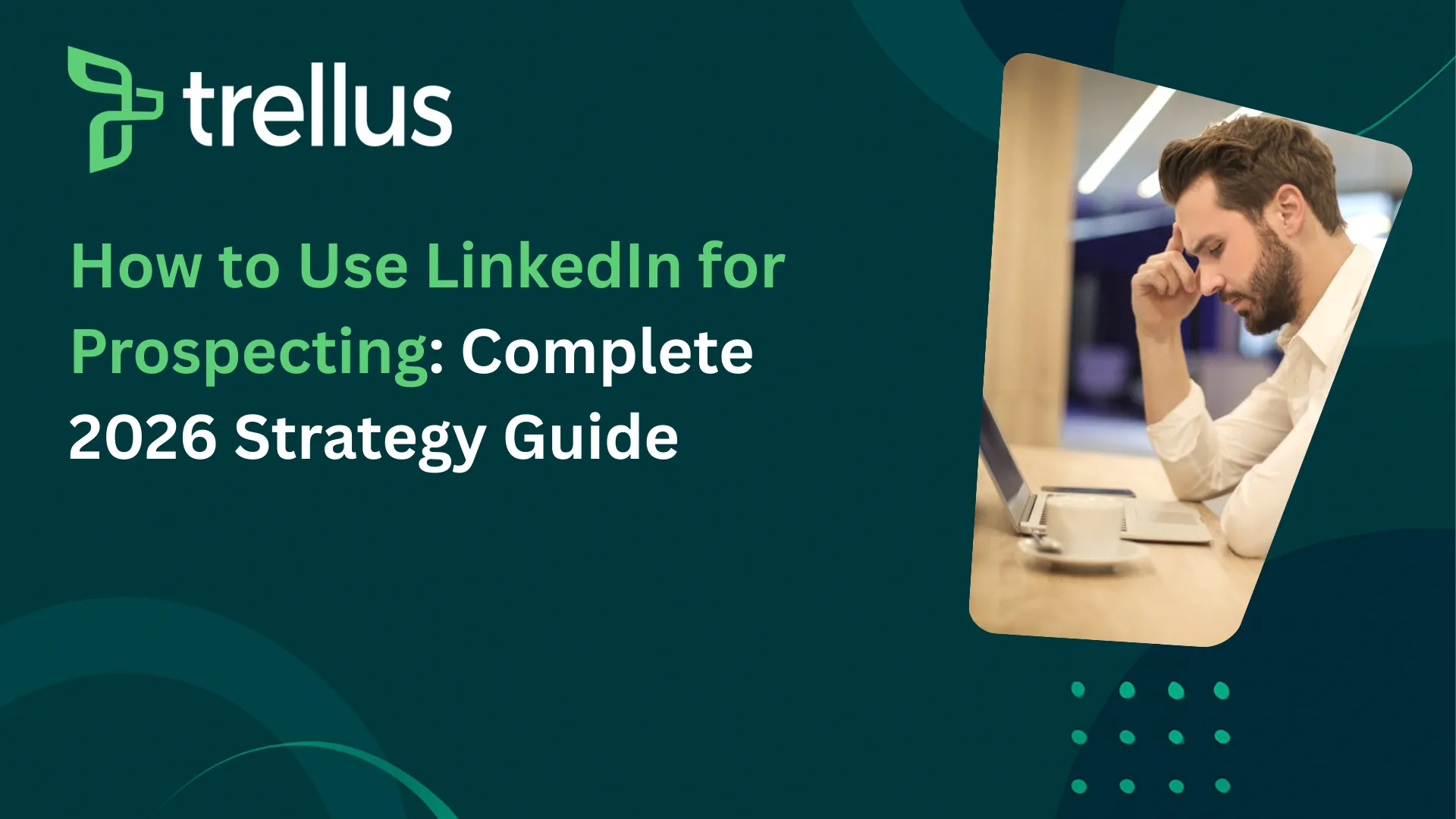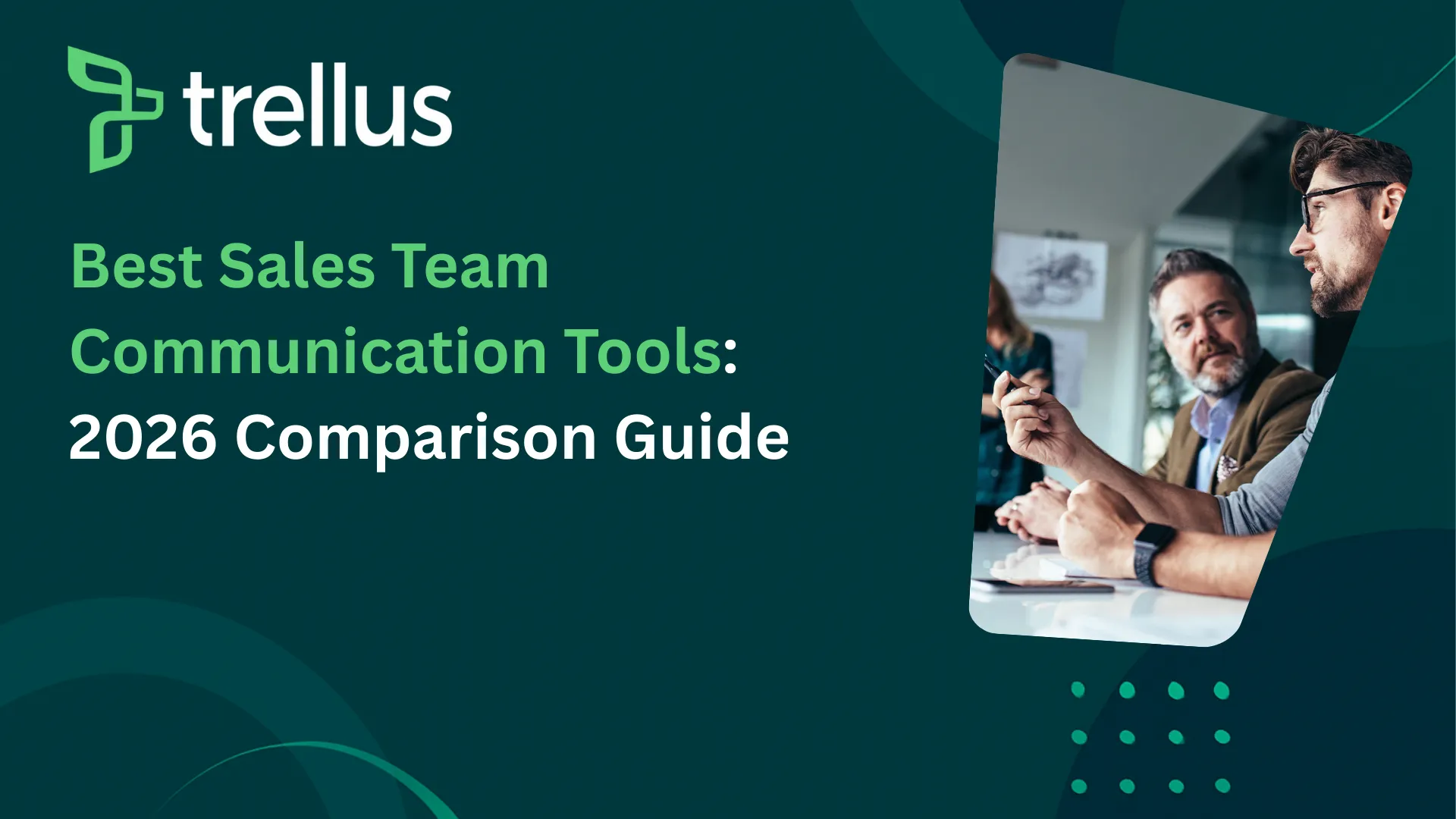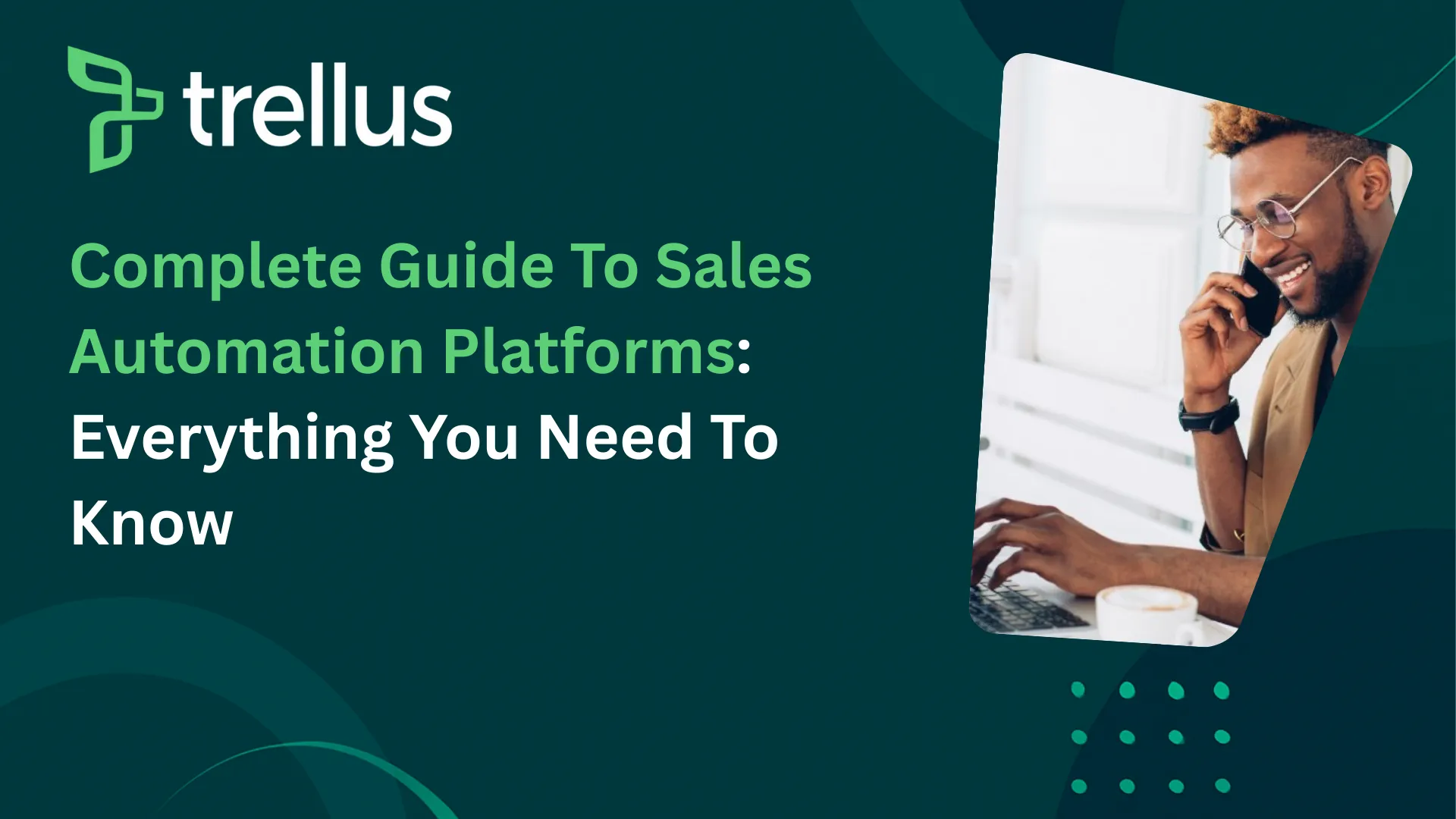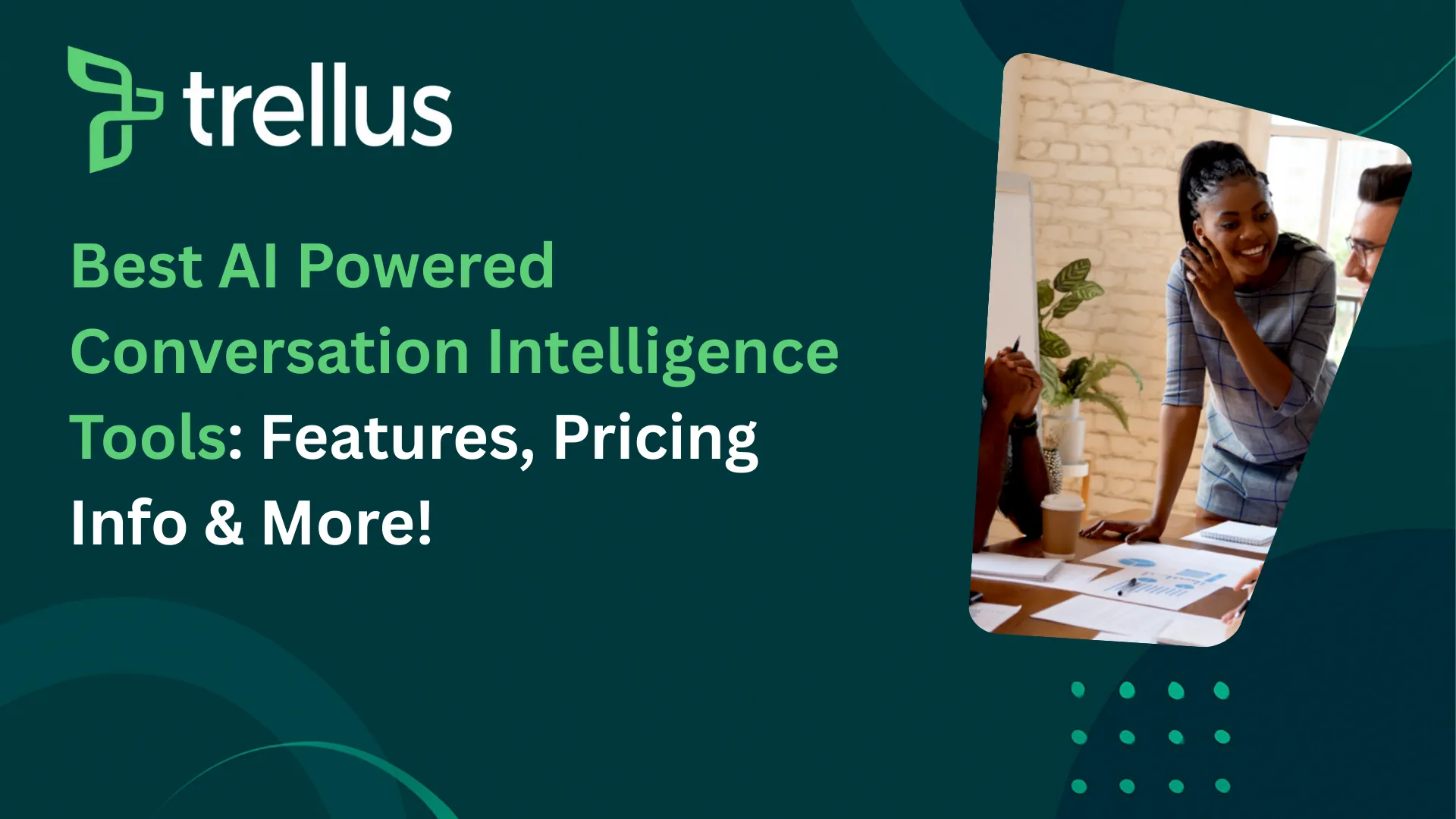
Our Top Picks


Running a revenue team today without the right insights is a lot like taking a cross-country road trip with no navigation.
You might know the starting point and the final destination, but when the road suddenly closes or traffic slows to a crawl, you’re left guessing.
Within the confines of a business environment, if we apply the same concept to a sales team struggling to convert prospects, there’s a lot that could be improved.
While it’s true that there are tons of outbound sales tools that help SDRs and AEs to connect with different leads in a variety of ways, some programs really shine out due to the technology and features they come with.
For instance, we’ve got a slew of AI-powered conversation intelligence tools; robust programs that assist SDRs through a simple, but highly effective, sales training process that works in both real-time, and offline/ local mode.
Instead of simply recording calls, this new wave of conversation intelligence software goes several steps further.
It listens, transcribes, and analyzes conversations at scale, highlighting the details that matter most: customer sentiment, deal risks, compliance issues, and the hidden patterns behind successful sales conversations.
For revenue teams that depend on speed, accuracy, and adaptability, these tools aren’t just “nice to have”—they’re the foundation of smarter decision-making.
Companies that use conversation analytics software are already reporting measurable gains. Sales teams often experience double-digit increases in win rates, significant cuts in time spent on manual call reviews, and better customer satisfaction scores.
The real power lies in transforming ordinary customer calls into real-time conversation insights that feed every part of the revenue engine—from coaching and training to forecasting and retention.
In a nutshell, “Do you need conversation intelligence?” anymore. And moreover, the real question is which platform will give your team the edge?
What is Conversation Intelligence Software?
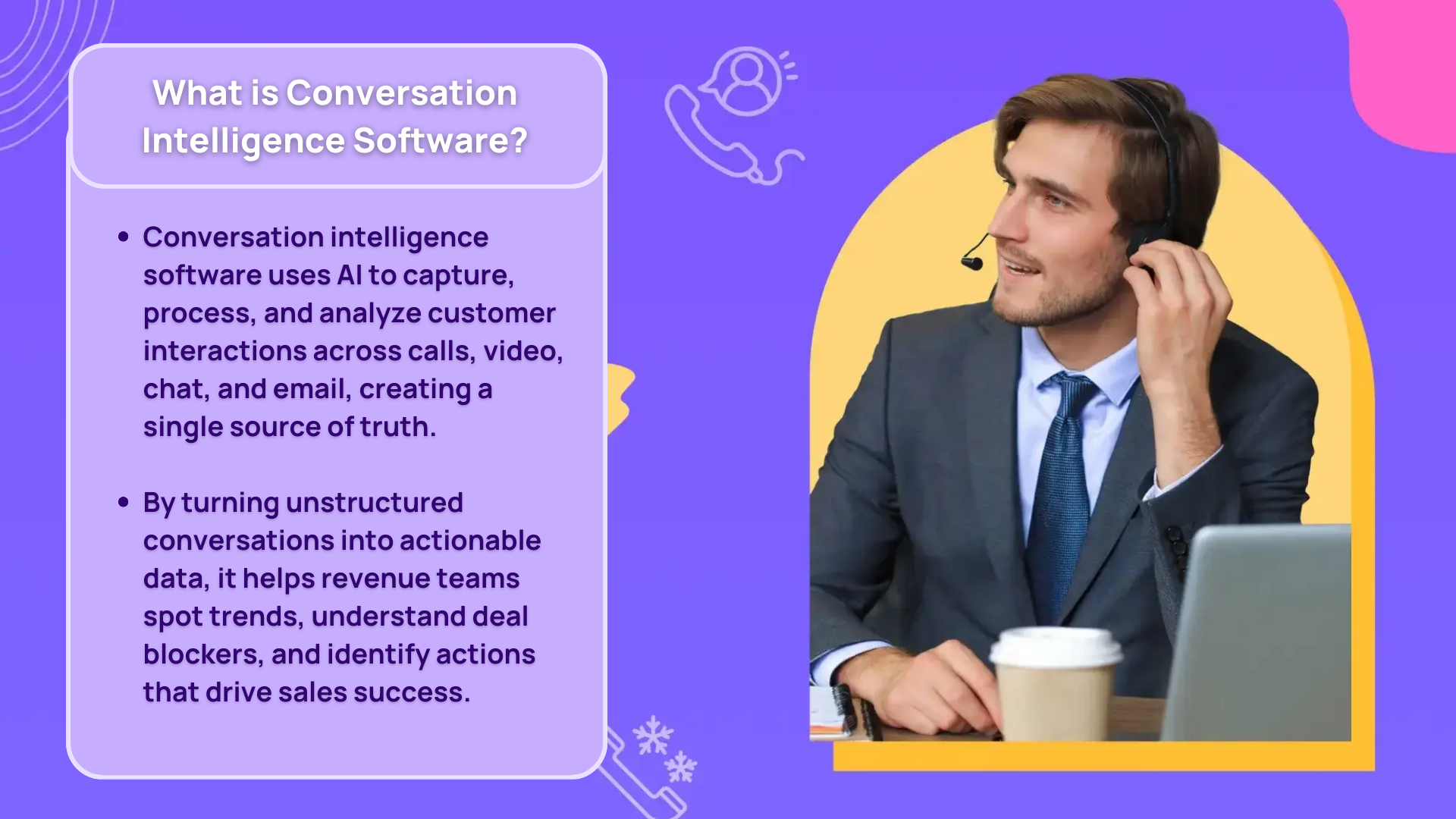
Conversation intelligence software is designed to understand and optimize the way businesses and customers communicate.
Think of it as a mix of voice intelligence software and conversation data mining that operates at scale. Instead of listening to one call at a time and taking notes, AI does the heavy lifting for you. It captures and processes conversations across phone, video, chat, and even email channels, giving you a single source of truth about what’s really happening with your customers.
At its core, conversation intelligence relies on technologies like natural language processing (NLP), machine learning, and predictive analytics.
These systems can turn unstructured conversations into structured data, track sales conversation trends, and highlight the key actions that drive revenue outcomes. For a revenue leader, this means no more guesswork when trying to understand why some deals move forward while others stall.
Key Features of Conversation Intelligence Software

When evaluating conversation analytics software, it’s important to know what separates the powerful platforms from the average ones. The strongest tools share a set of common features, each designed to drive value for different parts of your business.
Agent Enhancement Tools
The first area where AI shines is in making customer-facing employees more effective. AI-powered tools help in conversation intelligence by guiding agents during live calls.
For instance, if a customer asks a tough question, the AI can instantly suggest a relevant response or provide supporting information. It can even recommend the next best action, like offering a discount or scheduling a follow-up.
These tools also help refine the tone of responses, ensuring that agents always sound professional and empathetic.
Sales Call Transcription
Moving on, with the help of real time sales call transcription, every spoken word is automatically converted into accurate text. These transcripts become searchable records, making it easy to revisit conversations, identify recurring themes, and spot gaps in compliance.
For managers, it ends up creating an invaluable library of customer interactions that can be referenced for training or trend analysis.
AI-Powered Call Summaries
Not every sales manager has time to read a full transcript. That’s why voice intelligence software often includes AI-generated summaries.
These summaries highlight the most important moments in the conversation, such as objections raised, next steps agreed upon, or signs of customer enthusiasm. This saves hours of review time and ensures nothing important slips through the cracks.
Sentiment Analysis for Sales
Understanding the emotion behind a customer’s words can be just as important as the words themselves.
With sentiment analysis for sales, AI tracks emotional cues in tone, word choice, and phrasing.
On a related note, it also helps revenue teams spot frustration, hesitation, or excitement in real time. When a rep knows a customer is growing skeptical or disengaged, they can quickly adjust their approach to salvage the deal.
QA and Performance Scoring
One of the most valuable applications of conversation intelligence software is automated quality assurance. Calls are scored based on pre-defined criteria like compliance, tone, and customer satisfaction. Managers can see at a glance where agents are excelling and where they need coaching.
In other words, you could say that this structured feedback loop ensures continuous improvement across the team without requiring endless hours of manual call reviews.
Real-Time Conversation Insights
Perhaps the most exciting development in this space is the shift to real-time conversation insights. Instead of waiting until after a call is over, AI can provide instant feedback during live interactions.
From an expert’s point of view, it might include suggesting better phrasing, flagging a compliance risk, or alerting a manager when a deal is at risk of slipping away. Real-time feedback shortens the cycle between problem and solution, making conversations more effective in the moment.
Benefits of AI-Powered Conversation Intelligence
The impact of conversation intelligence software goes far beyond call recording.
But a lot of it depends on the type of software and how it was implemented for sales team training.
When applied strategically, these platforms deliver value across the entire customer journey. Some of the plus points of having a robust conversation intelligence solution are appended below:
Data-Driven Decision Making
Revenue leaders often struggle to separate gut instinct from hard facts. With conversation data mining, teams no longer rely on hunches.
Instead, they can spot real patterns across thousands of conversations—what topics drive the most objections, which competitors are being mentioned, and which talk tracks correlate with closed deals. This makes pipeline forecasting more accurate and strategic planning more grounded in reality.
Improved Service Quality
Every customer interaction is an opportunity to strengthen or weaken the relationship. Customer interaction analysis allows businesses to measure service quality in a consistent, scalable way.
Depending on the program’s features, if there’s automatic flagging of pain points and areas where there’s some degree of friction, then in that case, companies can address issues quickly, leading to higher satisfaction and loyalty.
Operational Efficiency
Manual note-taking, call reviews, and compliance monitoring are time sinks.
Through call recording analytics and AI-generated evaluations, teams free up hours every week. This efficiency not only reduces costs but also allows managers and reps to focus on higher-value activities like coaching and deal strategy.
Optimized Coaching and Training
One of the strongest use cases for AI-driven coaching feedback is personalized skill development. Instead of generic training sessions, managers can pinpoint exactly where a rep needs improvement.
Maybe they’re consistently talking over customers, or perhaps they struggle with closing language. The AI highlights these patterns, and managers can deliver targeted coaching that drives measurable improvement.
How to Choose the Right Conversation Intelligence Software
Selecting the best tool isn’t just about flashy features.
It’s pretty rare for large scale and enterprise level businesses to sign up for a software on impulse, but it does happen. New outbound sales platforms, or those businesses that haven’t had a lot of time in the industry, are often attracted to a conversation intelligence software features that normally don’t fulfill the workflow requirements.
As a result, it’s not only a waste of money because these programs are SaaS, and it also costs the business time and resources that could’ve been spent elsewhere.
Moving on, the right fit depends on your team’s specific needs, size, and growth trajectory.
- Channel Coverage: A strong platform should capture conversations across all channels—phone, video, chat, email, and even social media.
- Integration Capabilities: The software should fit neatly into your existing tech stack, especially your CRM and sales engagement platforms. Without this, you risk creating data silos.
- Ease of Use: The most powerful platform won’t add value if your team finds it frustrating or complicated to use. User-friendly interfaces lead to better adoption.
- Scalability: As your company grows, your call volume and data load will too. Scalable conversation analytics software ensures you won’t outgrow the system in a year or two.
Best AI-Powered Conversation Intelligence Platforms in 2025
Now that we’ve covered what to look for, let’s talk about a bunch of different platforms that are making the biggest impact.
These are the five standout solutions shaping how revenue teams work with conversation intelligence software today.
1. Trellus – AIO Sales Coaching Software With Embedded Parallel Dialer, End-to-End Sales Enablement Features & More
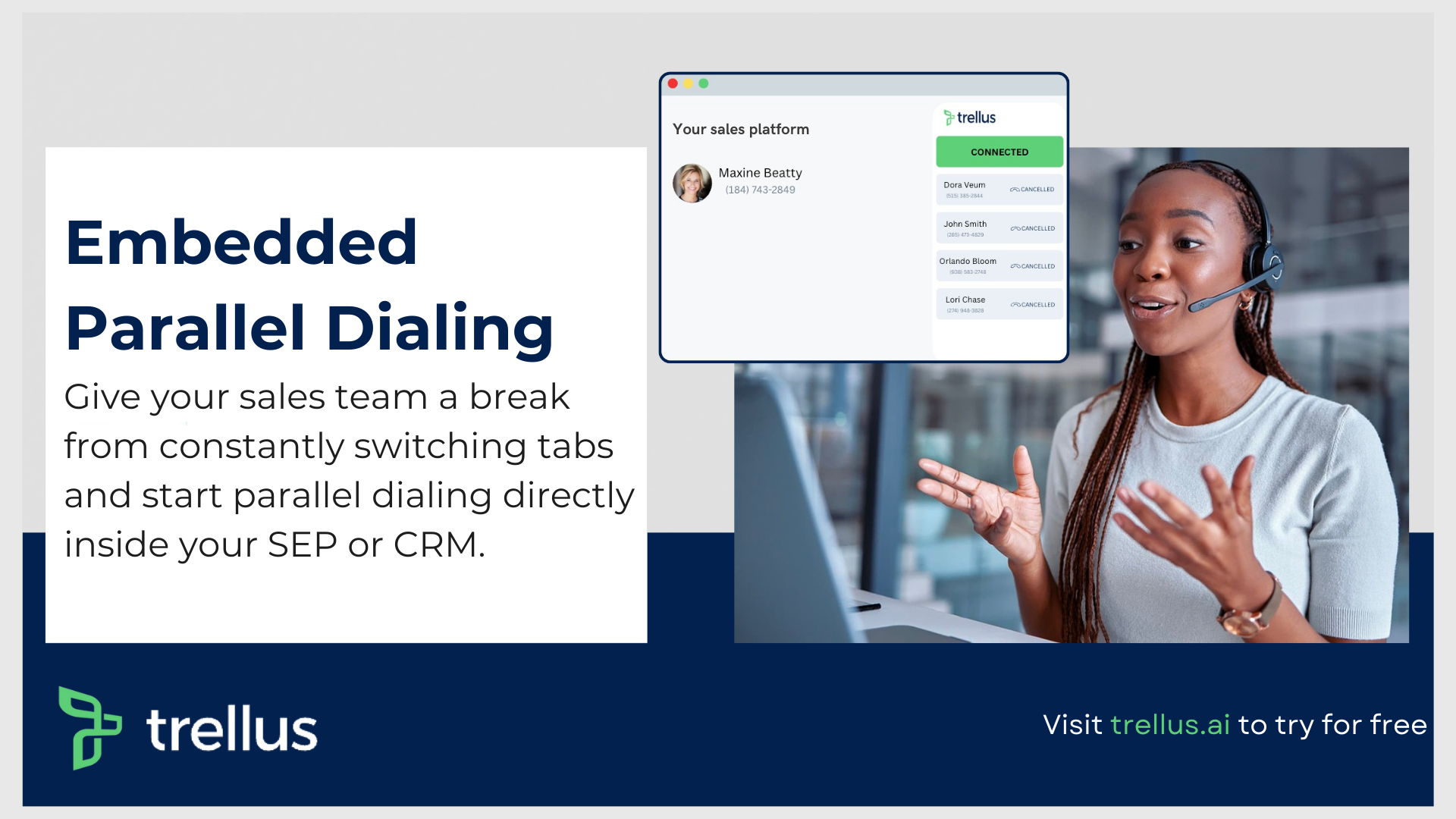
Given the complex dynamics of modern-day hyper-competitive sales, teams face immense pressure to hit ambitious targets.
They’re often bogged down by inefficient processes, juggling multiple tools, dialing endlessly, and manually keeping track of every call detail. It’s an exhausting process prone to errors, slowing down progress when every second counts.
Trellus is a conversation intelligence platform designed to address these challenges head-on. The platform doesn’t just work like a typical sales tool; it’s more of a dynamic digital solution with tons of out of the box solutions.
You could say that conversation intelligence is part of many other features that enable sales teams to convert better, work faster, and secure prospects easily.
Flexible Pricing for Teams Big and Small
One of our tool’s most attractive features is its flexible pricing.
After all, price plans are always more of a baseline structure where your business needs to decide if the tool is worth signing up for.
On that note, regardless of whether you're a small startup just about getting started in the sales world or a large enterprise managing complex workflows, there’s an option that fits your needs.
1. Free Forever Plan
- Cost: $0
- Best For: Startups and small teams wanting to test how Trellus can improve their sales operations without financial commitment.
- Key Features:
- Basic AI-driven calling capabilities to enhance call quality.
- Tools for tracking outcomes and improving call efficiency.
2. Power Plan
- Cost: Starting at $59.99/month (billed monthly).
- Best For: Small to mid-sized teams aiming to scale operations.
- Key Features
- Includes everything in power, plus:
- Multi line dialing
- VM drop on all platforms
- Unlimited AI practice calls
- 5 additional phone numbers + spam remediation
For businesses managing extensive sales pipelines, this plan is a game-changer, offering unmatched flexibility and advanced features.
Better CRM Compatibility
One of the most frustrating pain points for sales reps is constantly switching between platforms.
The platform completely eliminates this hassle with its seamless compatibility with major CRM systems.
Every call log, note, and outcome syncs automatically, ensuring teams can stay focused on selling without worrying about manual data entry.
This integration not only keeps workflows organized but also ensures critical data is stored accurately and effortlessly.
Real-Time Conversation Intelligence for Better Outcomes
One of the best features to date, and especially when compared in terms of feature vs. pricing standpoint, our real-time conversation intelligence is a big deal.
Powered by extensive AI that uses NLP and machine learning, the platform analyzes conversations as they happen, providing actionable suggestions to reps in the moment.
How This Works:
- The system listens to calls in real time, offering guidance to refine phrasing, handle objections, and keep conversations focused on conversions.
- Sales reps gain confidence knowing they have support during challenging discussions.
This feature is particularly beneficial for newer team members who can quickly learn best practices and deliver results.
AI-Powered Behavioral Analysis
It doesn’t stop at analyzing what happens during a call—this tool learns from the data and provides actionable insights for continuous improvement.
- Personalized Feedback for Reps: Salespeople receive tailored coaching based on their performance, helping them improve over time.
- Team-Wide Insights: Managers can identify strengths and weaknesses across the team, addressing problem areas while amplifying successful tactics.
Automation That Saves Time and Boosts Efficiency
Sales teams often lose hours to repetitive administrative tasks, but Trellus transforms this process.
Key Automation Features:
- Automatic Call Logging: Every interaction is documented without manual input, saving time and reducing errors.
- Voicemail Drops: Leave pre-recorded messages effortlessly across multiple platforms.
- Categorized Call Outcomes: Call results are sorted and logged for easy tracking and reporting.
2. Calabrio – Enterprise Contact Center Management
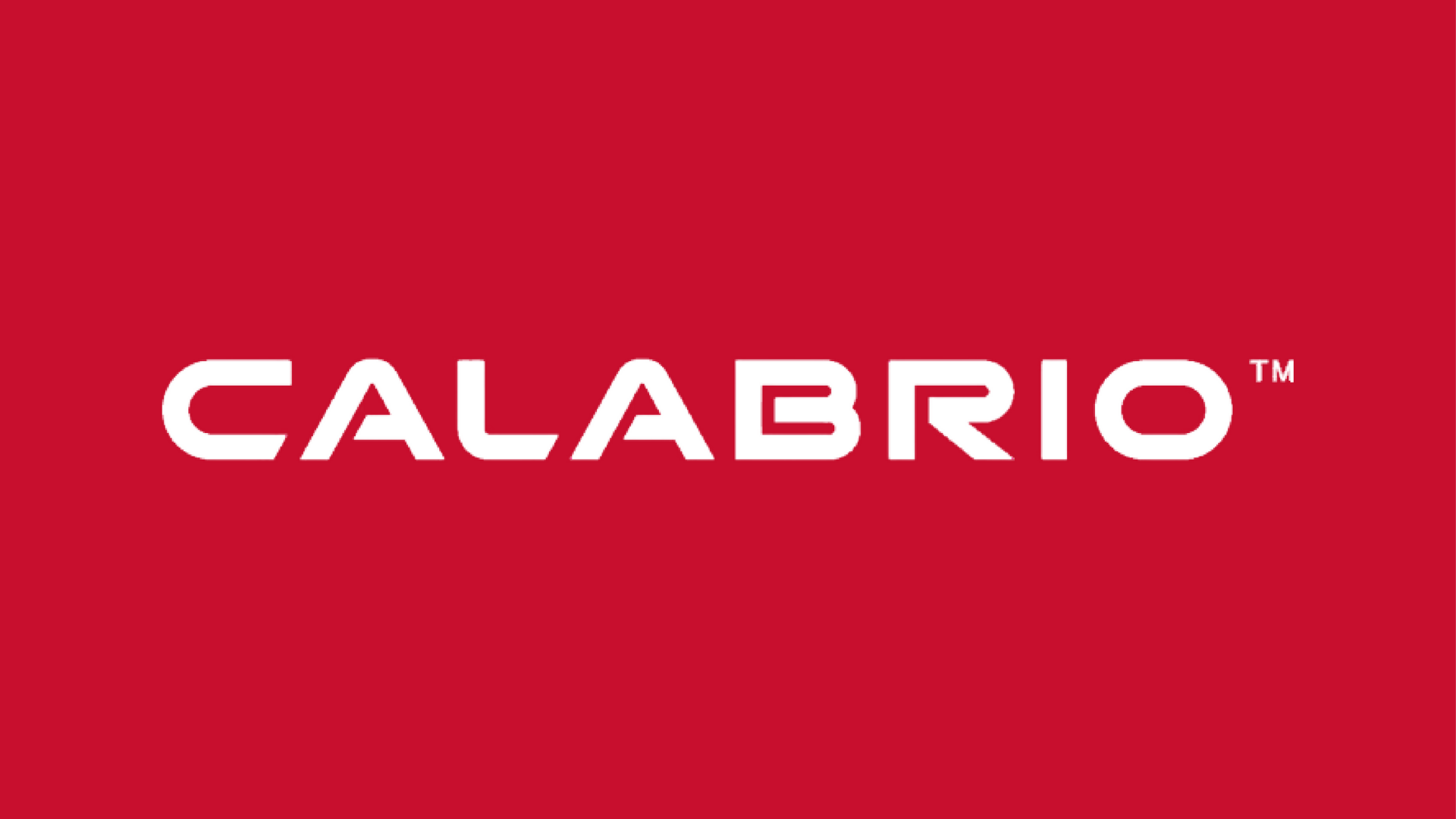
Calabrio takes a broader approach, positioning itself as both a revenue intelligence platform and a workforce optimization tool.
It’s designed for large enterprises handling thousands of interactions daily. Where it shines is in combining call recording analytics with workforce scheduling, compliance monitoring, and quality assurance.
Key Features:
- Workforce management and predictive scheduling
- Multi-channel customer interaction analysis
- Automated call scoring and compliance checks
- Performance dashboards for managers
- Enterprise-grade security
Best For: Enterprise contact centers that need robust workforce management combined with conversation analytics software.
Pros: Excellent for handling scale, powerful QA features, strong compliance monitoring.
Cons: Steeper learning curve, higher investment, requires dedicated administration resources.
3. Salesloft – End-to-End Sales Engagement
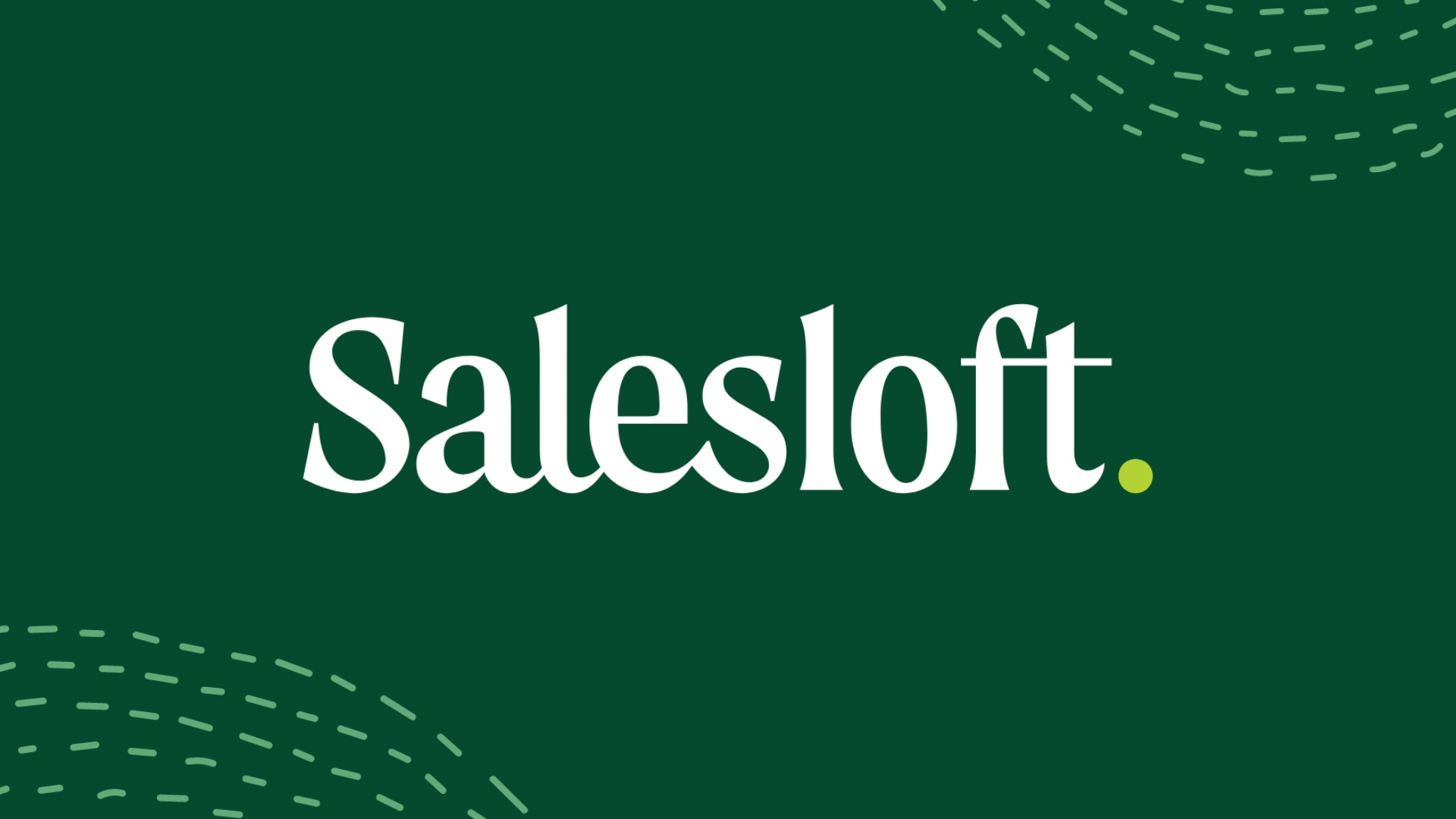
Salesloft blends conversation intelligence software with a full suite of sales engagement tools. Its strength lies in unifying call insights with broader pipeline management, helping teams not only analyze conversations but also take immediate action through cadences and automation.
Key Features:
- Automated sales cadences tied to real-time conversation insights
- Pipeline forecasting and revenue analytics
- Deal management and CRM synchronization
- Conversation analysis integrated with engagement workflows
Best For: Enterprise sales teams running complex, multi-touch sales processes who want a single revenue intelligence platform.
Pros: Strong pipeline visibility, robust automation, deep CRM integration, and scalable architecture.
Cons: More expensive than standalone tools, feature set may be overwhelming for smaller or simpler sales teams.
4. Echo AI – Customer Experience and Retention
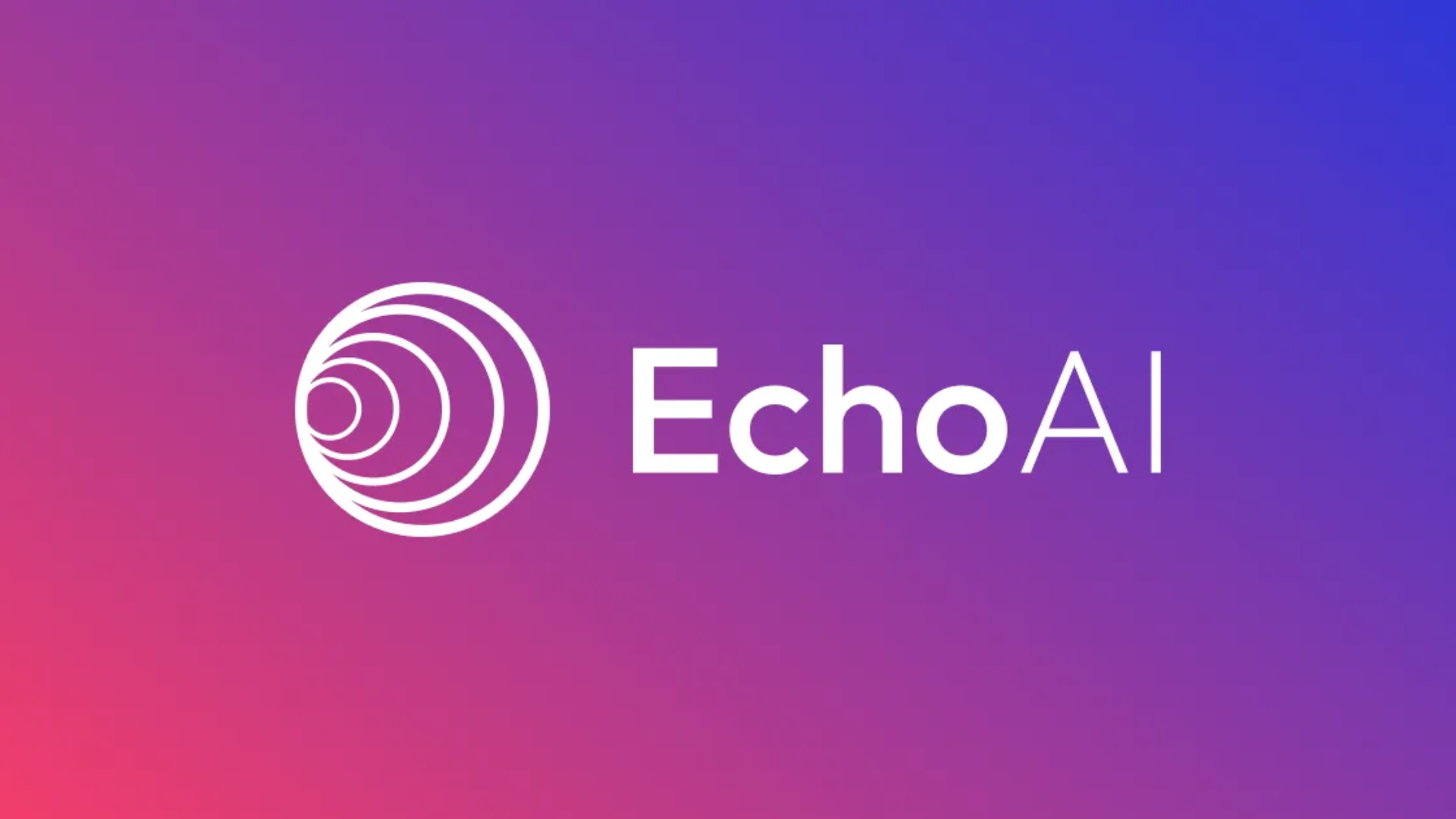
Echo AI specializes in turning conversations into clear, actionable outcomes. Its focus is on sentiment analysis for sales and churn prevention, making it particularly useful for mid-market companies that want meaningful insights without the complexity of enterprise platforms.
Key Features:
- AI-generated call summaries
- Customer interaction analysis with churn prediction
- Sentiment tracking and keyword monitoring
- Real-time analytics and coaching tools
Best For: Mid-sized companies focused on retention, customer experience, and targeted coaching.
Pros: Fast implementation, intuitive design, strong focus on actionable insights.
Cons: Fewer integrations and less workforce management functionality compared to enterprise suites.
5. Gong – Revenue Intelligence and Deal Health

Gong is arguably the most well-known revenue intelligence platform on the market. Its strength lies in capturing conversations across multiple channels, analyzing them at scale, and surfacing risks or opportunities in the sales pipeline.
Gong doesn’t just tell you what was said—it tells you what it means for the deal.
Key Features:
- Call recording analytics with searchable sales call transcription
- Deal intelligence that flags risks and opportunities
- Continuous tracking of sales conversation trends
- AI-driven recommendations for improving pitches
- Real-time pipeline visibility for managers
Best For: Revenue teams that want end-to-end visibility into customer interactions and deal health.
Pros: Powerful insights, strong analytics, trusted by large enterprise sales teams.
Cons: Pricing is on the higher side, and requires process maturity to maximize value.
Final Thoughts
You don’t have to pick a tool blindly.
Regardless of whether your priority is large-scale workforce management, pipeline analytics, or customer retention, there’s a platform tailored to your goals. What unites them all is the promise of turning ordinary conversations into extraordinary business results—powered by AI.



